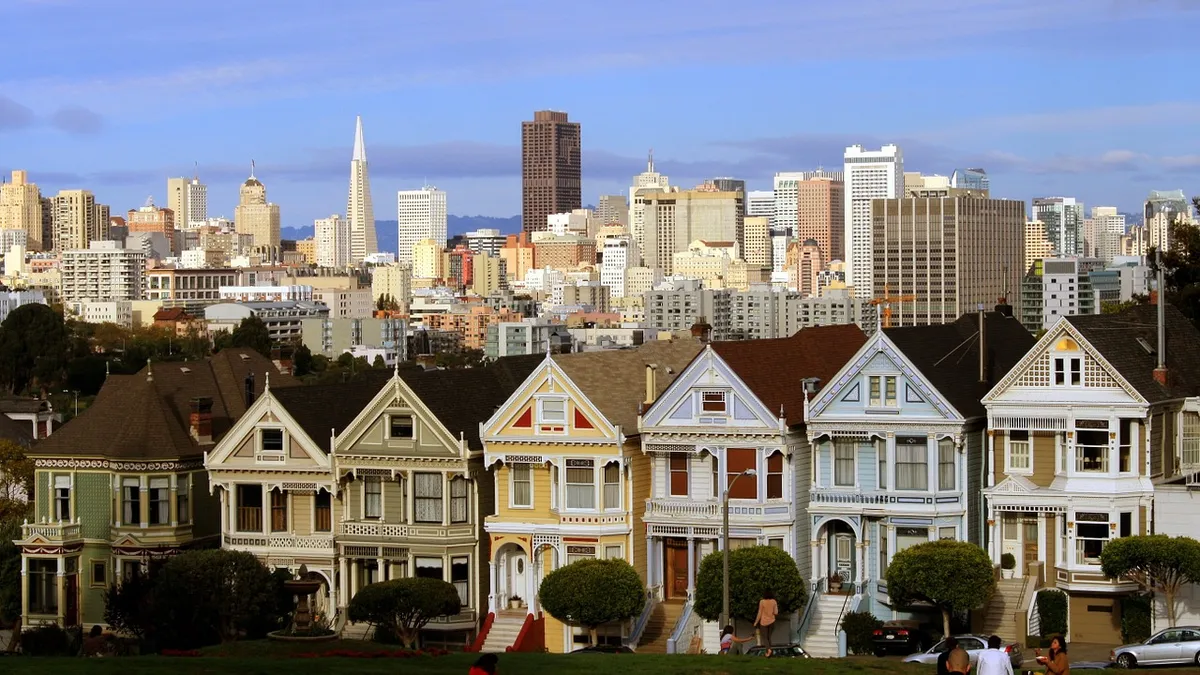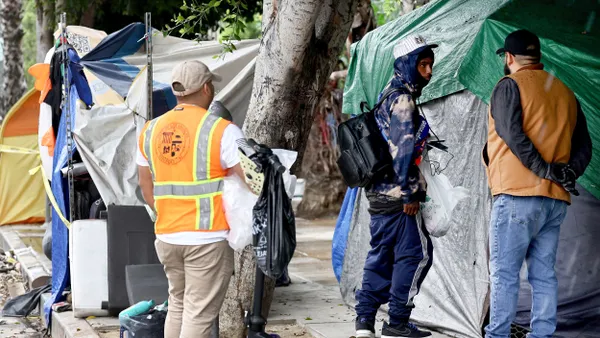Dive Brief:
- San Francisco issued a request for qualifications (RFQ) for private sector firms to submit proposals to "design, build, finance, operate and maintain a citywide fiber to the premises network, lit fiber and Wi-Fi services project."
- After the RFQ closes in late March, the city will select up to three qualified respondents to bid on a subsequent request for proposals (RFP) for the project. From there, the city will select one final partner, and will supply a significant amount of funding for the development of the network, according to San Francisco Examiner.
- The RFQ follows an October 2017 report, commissioned by CTC Technology and Energy, that detailed the potential for a ubiquitous and open fiber network in the city. The report estimated the entire project could cost up to $1.9 billion.
Dive Insight:
By preparing a fiber to the premises (FTTP) network — which can connect to all homes and businesses in San Francisco — the city is working to ensure fiber is delivered in a ubiquitous manner. The network will also include net neutrality requirements that outline "no blocking of lawful websites" and "no paid prioritization" of certain content — a direct response to the Trump administration's efforts to repeal net neutrality.
"Trump’s hand-picked FCC and Republicans in Congress have dismantled crucial net neutrality, privacy, and consumer protections," said interim Mayor Mark Farrell in a statement. "We will provide an alternative that favors the general public and San Francisco values, not corporate interests. Through this project, we will close the digital divide, ensure net neutrality, and create a truly fair and open internet in San Francisco."
Of course, there are a number of obstacles that come with such an enormous undertaking. The economics of competitive broadband have proven to be challenging, and 12% of San Francisco residents currently lack internet access, primarily due to costs. $1.9 billion is a hefty price tag for the lit FTTP construction and roll-out, though the potential of a low-cost and inclusive, city-owned service is in the best interest of San Francisco.
Farrell originally initiated the Fiber for San Francisco Initiative during his time as District 2 supervisor. In late January, the San Francisco Board of Supervisors appointed Farrell as the city's interim mayor until the formal mayoral election in June — however, to do so, they pushed out London Breed, who was serving as acting mayor following Ed Lee's death. The move stirred up a political controversy — Farrell, a white male, was unexpectedly replacing Breed, a black female — though The New York Times underlined that Farrell was known for being "critical of tech companies’ influence on San Francisco," while Breed was more supportive of the tech industry's influence.
It is suggested that this fiber initiative would not have taken place under Breed's leadership, though ironically enough, Farrell has already pledged he will end his political career when a successor is announced in June. The success of the bid selection process and full build-out — which may take up to five years — remains to be seen under a new mayor.












